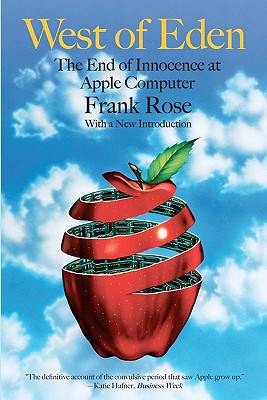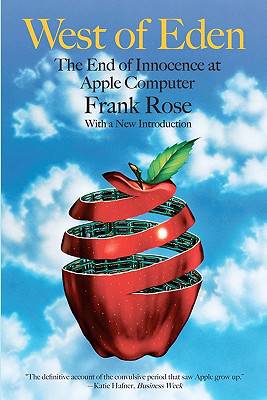
- Afhalen na 1 uur in een winkel met voorraad
- Gratis thuislevering in België vanaf € 30
- Ruim aanbod met 7 miljoen producten
- Afhalen na 1 uur in een winkel met voorraad
- Gratis thuislevering in België vanaf € 30
- Ruim aanbod met 7 miljoen producten
Zoeken
€ 31,45
+ 62 punten
Omschrijving
It seems unthinkable today-but a quarter-century ago, when personal computers were still new, Steve Jobs was cast out of Apple. The year was 1985. IBM and Microsoft dominated the computing world. The revolutionary Macintosh, launched with such fanfare the year before, was foundering. And Jobs, the guiding force at Apple from the beginning, seemed a threat to his own company. West of Eden-a national best-seller when it first appeared in 1989, now updated with a new introduction-tells how Jobs lured John Sculley from Pepsi-Cola to lead Apple into the future and then found himself pushed into exile. This kind of corporate intrigue was far from the entrepreneurial innocence of Apple's early years. But this is more than a tale of corporate upheaval. It's a story of America in the '80s, when computers seemed as much a threat as a promise, conformity ruled in the corporate suites, and a desire to change the world was almost automatically suspect. It is the story of a visionary's fall.
Specificaties
Betrokkenen
- Auteur(s):
- Uitgeverij:
Inhoud
- Aantal bladzijden:
- 374
- Taal:
- Engels
Eigenschappen
- Productcode (EAN):
- 9780615278841
- Verschijningsdatum:
- 7/04/2009
- Uitvoering:
- Paperback
- Formaat:
- Trade paperback (VS)
- Afmetingen:
- 152 mm x 229 mm
- Gewicht:
- 548 g

Alleen bij Standaard Boekhandel
+ 62 punten op je klantenkaart van Standaard Boekhandel
Beoordelingen
We publiceren alleen reviews die voldoen aan de voorwaarden voor reviews. Bekijk onze voorwaarden voor reviews.











